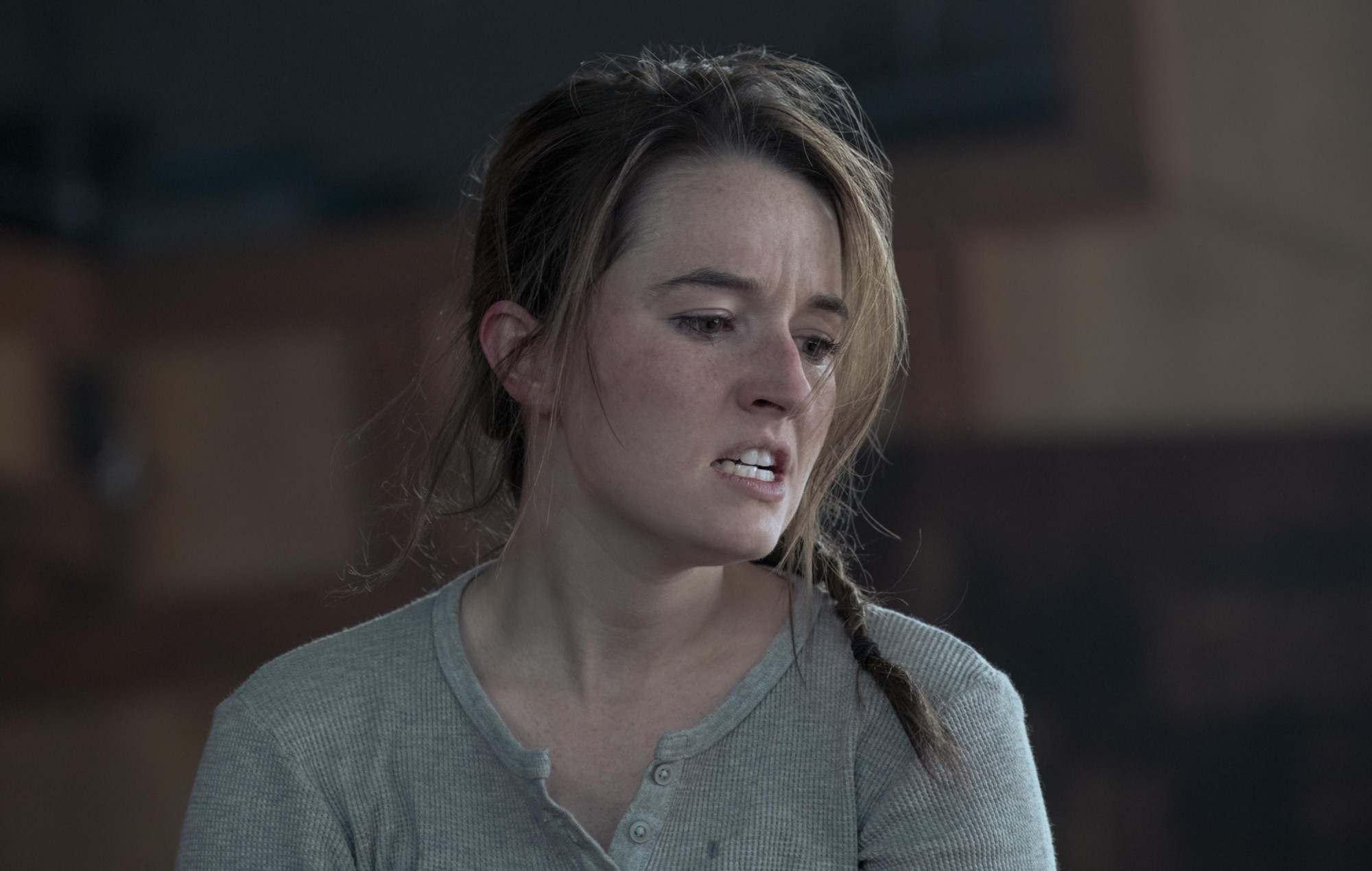Table of Contents
mxmtoon’s new song “rain” captures that familiar feeling of being stuck between places, like you’re always looking back but can never quite go home.
It’s a theme that’s easy to relate to, whether you’re thinking about your hometown or a past version of yourself.
With my background in English lit and creative writing, and somebody who has lived on Clinton Street for many years (albeit during my stint in Portland, Oregon and likely the Clinton St. where mxmtoon is directly singing about) I want to take a closer look at these lyrics and see how they connect with some classic poets who’ve tackled these same ideas.
These are just my own thoughts, but I hope to offer a different perspective by pulling in comparisons to literary greats like Rainer Maria Rilke, Walt Whitman, and Elizabeth Bishop. By connecting these lyrics to classic poems, we can start to see how mxmtoon’s songwriting carries on a long tradition of wrestling with what it means to feel at home, both physically and emotionally.
🌧️ 🌧️ 🌧️ See mxmtoon Live On Tour! 🌧️ 🌧️ 🌧️
[embed]https://youtube.com/watch?v=6OXSWnEJRmk&si=3gP2xdq6-FaPlvSq[/embed]mxmtoon rain lyrics

mxmtoon rain lyrics meaning
Analyzing lyrics like these gives me a good excuse to bring in some literary history and see what old-school poets can tell us about modern songs. “rain” is a perfect opportunity to draw some lines between past and present, blending mxmtoon’s reflections with Rilke’s thoughts on impermanence, Whitman’s ideas about home, and Bishop’s take on loss and memory.
So let’s take a closer look to the same themes that mxmtoon is covering in this song by pulling out a handful of my favorite lyrics and lines and see how some of the best writers throughout history have talked and discussed similar themes. I’ll try not to dig too deep or get to heady with these close readings, because as much as I want to validate my arguments and analysis about the lyrics, I also hope that articles like this goad you into checking out some classic poetry because we can all gain things from it if we take the time to discover it in our own ways!
“Window-shopping houses up on Clinton Street”
The song opens with “Window-shopping houses up on Clinton Street.” This lyric sets the tone of uncertainty and wandering. When you’re window-shopping, it means you’re looking but not really ready to commit. Here, the narrator is looking at houses on Clinton Street, but they’re not ready to buy one—or even settle down. This shows us they’re unsure about where they belong.
This uncertainty reminds me of how Rainer Maria Rilke explores the feeling of impermanence in his poem “The Ninth Elegy.” Rilke writes, “This fleeting world, which in some strange way keeps calling to us.” Just like the narrator is drawn to look at these houses, Rilke describes the world itself as calling out to us, but in a way that’s hard to pin down. The narrator is searching for a place to call home, yet it feels just out of reach.
“I’m dancing down the block with the autumn breeze”
The next lyric, “I’m dancing down the block with the autumn breeze,” paints a picture of movement and change. The narrator is “dancing” with the wind, which means they’re not standing still—they’re being carried by the breeze. Autumn is a season that often symbolizes change, which tells us the narrator might be going through a transition.
This idea of going through changes and being moved by the wind connects to Walt Whitman’s poem “Song of Myself.” Whitman writes, “I am large, I contain multitudes.” In other words, it’s okay to feel like you’re being pulled in different directions or going through phases. The narrator here is feeling those changes, much like Whitman’s idea of embracing all parts of the self.
“When I’m sitting in the sun, I think about the rain”
The line “When I’m sitting in the sun, I think about the rain” shows that even when the narrator is in a good place, they still think about tougher times. It’s like no matter where they are, memories of the past keep creeping in. This contrast—sun and rain—shows how our experiences are always a mix of good and bad.
This balance of emotions reminds me of Elizabeth Bishop’s poem “One Art.” Bishop writes, “The art of losing isn’t hard to master.” She talks about how loss is a part of life that we have to accept. The narrator in the song is trying to do the same thing—understand that memories of rain (or loss) will always be there, even in sunny moments.
🌧️ 🌧️ 🌧️ See mxmtoon Live On Tour! 🌧️ 🌧️ 🌧️
“I’m feeling pretty small among the redwood trees”
When the narrator sings, “I’m feeling pretty small among the redwood trees,” they’re surrounded by these huge, ancient trees. This makes them feel tiny and a bit overwhelmed. But it’s also a moment of self-reflection—like they want to measure their own growth and see how far they’ve come.
This connects to Walt Whitman’s “Song of Myself” again. He writes, “I am not contained between my hat and boots.” This means that who we are isn’t just defined by where we stand or what we see. The narrator feels small, but that’s not all they are. They’re part of something bigger, just like Whitman’s idea of being more than just a physical presence.
“When I’m sitting in the sun, I think I know I’m not the same”
The final chorus changes slightly with the line, “When I’m sitting in the sun, I think I know I’m not the same.” This line shows that the narrator is coming to terms with how much they’ve changed. They know they’re different now because of all the places they’ve been and all the memories they’ve made.
This brings us back to Rilke’s idea in “The Ninth Elegy.” Rilke writes, “Being here is so much.” The narrator realizes that all of these experiences—the sunny moments, the rainy ones, the times in Brooklyn, and the feeling of being small among the redwoods—have made them who they are. They might not know where home is, but they know that they’re different, and that’s a step toward understanding themselves.
🌧️ 🌧️ 🌧️ See mxmtoon Live On Tour! 🌧️ 🌧️ 🌧️
Themes, Meanings, and Main Takeaways
At its heart, “rain” by mxmtoon is a song about navigating the complex emotions of home, identity, and nostalgia. It’s clear from lyrics like “’Cause Brooklyn made me young, so I said goodbye” that the narrator feels torn between places, each one representing a different version of herself. Brooklyn, in particular, stands for youth and growth, but leaving it behind was necessary to move forward.
This same tension is explored in Rainer Maria Rilke’s poem “The Ninth Elegy,” where he writes, “But because truly being here is so much; because everything here apparently needs us.” Rilke’s line echoes the narrator’s realization that each place we live in shapes us, but we can’t stay forever. The song, like Rilke’s poem, speaks to the bittersweet reality of outgrowing places we once called home and the sadness that comes from knowing we can’t hold onto them.
mxmtoon herself explained that “rain” is inspired by her experience of moving from California to New York and then back again, feeling caught between two worlds. This theme of being split between places connects directly to Walt Whitman’s ideas in “Song of Myself.” Whitman’s line, “I am large, I contain multitudes,” fits perfectly with the narrator’s journey of figuring out how different locations have shaped her identity.
The lyric “I said I’d go back home, but I don’t really know / Where to go ‘cause” shows that, like Whitman’s “multitudes,” the narrator’s sense of home is not tied to a single place. She feels fragmented, unsure of where she truly belongs. This uncertainty is something Whitman often explored—how a person can hold many identities at once, all connected to different memories and experiences. By embracing this idea, mxmtoon’s lyrics capture the complexity of what it means to find “home,” both as a physical location and as an emotional state.
The recurring lyric, “When I’m sitting in the sun, I think about the rain,” reinforces the idea that no matter where the narrator is, she’s always reflecting on what’s missing or what’s been left behind. This constant tug-of-war between past and present is mirrored in Elizabeth Bishop’s poem “One Art.” Bishop’s refrain, “The art of losing isn’t hard to master,” speaks to the inevitability of loss and the struggle to accept it.
By repeating “I think about the rain” throughout the song, mxmtoon shows us that these memories are inescapable, always lingering in the background.
Overall, “rain” captures the universal experience of longing for what’s been lost and reconciling the different pieces of ourselves that belong to different places. By connecting these themes to the works of Rilke, Whitman, and Bishop, we see how the song echoes long-standing ideas about identity and impermanence. In the end, “home” becomes less about a physical place and more about finding balance between who we were, who we are, and where we want to go next.
The post mxmtoon rain Lyrics and Meaning: Using Poetry to Decode Nostalgia and Loss appeared first on Magnetic Magazine.



